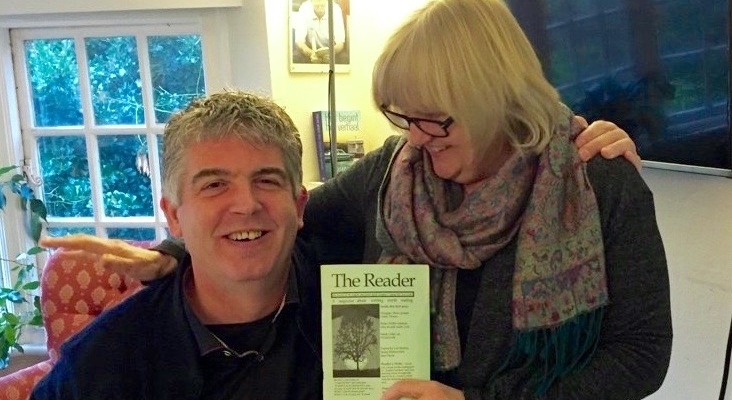Japanese Diary: The Devil Makes Work
Kimberley Long is a former Reader volunteer currently teaching English in Japan.
There are definitely some bonuses to having my job, the most obvious being that I get to live in Japan for a year. The pay isn't bad either, but the best perk of all is the amount of free time. Of the forty hours a week I spend in school I only spend 18 of them at the front of a classroom. Then you have to subtract the number of lessons that get cancelled due to monthly exams, sports day, having an hour-long assembly to cheer on the baseball team, and numerous other things.
All in all this leaves a lot of time for me to while away at my desk in the massive teachers' office I share with forty other members of staff. There are plenty of ways of doing this. Even after I've finished planning whatever I need for the weeks classes there's still time to devote to studying Japanese, however difficult this seems to persist in being. There's also the highly skilled activity of staring blankly into space. And sometimes it's fun to have a few minutes gossiping and giggling with the young English teacher who sits next to me, whilst we munch our way through the enormous store of chocolate she keeps in her desk. But I've spent a lot of time working my way through as many novels as possible.
During a recent exam week lull I turned to Truman Capote's In Cold Blood for some inspiring school-time reading. I adore Capote's writing style and I couldn't stop myself from racing through the pages. Being in the teachers' office, however, guarantees anything but quiet reading time. Between classes the students wander around, coming in to speak to the teachers about a myriad of things, most of which I have absolutely no idea about. They come over calling for 'our Kimu' to try out a few English sentences on me. This usually ends in them asking for candy from the prize box or telling me the Kimono-wearing Hello Kitty toy I have sitting on my desk is 'kawaii' ('cute' in English).
But reading a novel about murder most foul when I have curious students and fluent English speaking colleagues around makes me feel nervous. Does choosing to read about death somehow make me seem a bit odd? Japan can be surprisingly straight-laced at times, and I don't want to become the English girl who likes hearing about murders. I am engrossed in reading the gory details of the murders of the innocent Clutter family when I become aware of one of the students who has shuffled up silently behind me, peering quizzically at the (I hope) indecipherable text on the page in front of me.
Capote's thriller is proof that knowing the ending doesn't necessarily spoil your enjoyment of a story. From the outset we know that almost all the characters we are introduced to will meet their demise at the hands of another human, but it's hearing their stories that's the pleasure. Still Capote complies with a thrilling ending, leaving out the details of what exactly happened on the remote farm house one cold winter night until the very end of his twisting narrative. Perhaps my discomfort in reading the novel is partly what Capote set out to achieve; to create victims and killers who elicit your sympathy.
The idea that a popular and respected family could be unwittingly the target for two criminals unknown to them leaves you looking over your shoulder. Even when you're perfectly certain that the only person behind you is a fifteen year old girl with multi-coloured fingernails and a pink clip in her hair, who is interested in everything that the English girl does, eats and reads, the novel makes you nervous. Suddenly I find that I have way too much time to think.
By Kimberley Long
Share
Related Articles

Celebrating the first ever International Shared Reading Conference
‘It has been a wonderful day - great meeting you all! Loved the Shared reading and getting new knowledge. Inspiring…

Henrik Wig, Sweden: ‘In a world where democracy is in many ways threatened, Shared Reading can be a counterforce’
Literature teacher Henrik has been running Shared Reading groups across southern Sweden for six years with children’s groups and at…

Reader Revisited: An Interview with Het Lezerscollectief (The Readers’ Collective)
We're taking a trip down memory lane and revisiting articles from The Reader Magazine. This article first appeared in issue 73.…


